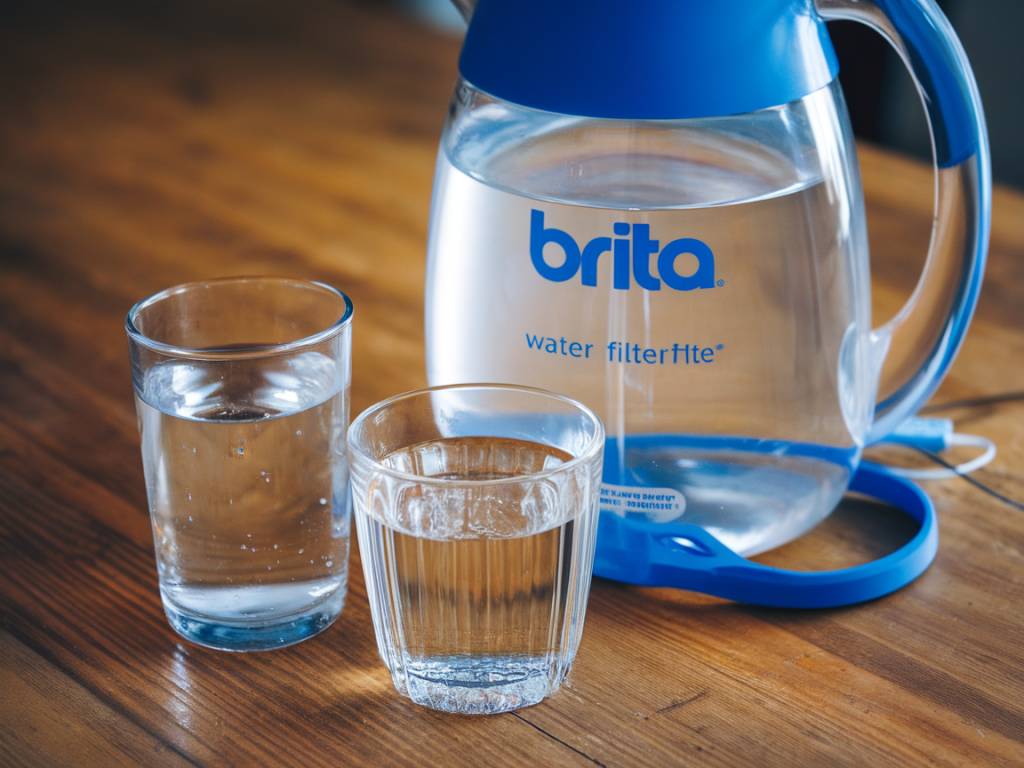Understanding How Brita Filters Work
Water filtration is an essential aspect of maintaining good health and well-being. Many households rely on Brita filters to improve their drinking water quality. But have you ever wondered how these filters actually work? Are they truly effective in purifying water, or is it just clever marketing?
In this article, we’ll delve into the mechanics behind Brita filters, their ability to remove contaminants, and whether they are the best choice for your home.
The Mechanics Behind Brita Filters
Brita filters use a combination of activated carbon and ion exchange resin to remove impurities from tap water. Here’s a breakdown of how each component works:
- Activated Carbon: This material is made from coconut shells or coal and is highly porous, allowing it to trap contaminants such as chlorine, volatile organic compounds (VOCs), and certain chemicals. It also helps improve the taste and smell of water by reducing chlorine levels.
- Ion Exchange Resin: This component targets heavy metals like lead, copper, and mercury by swapping harmful ions with safer ones. This process helps reduce metal contamination, making the water safer to drink.
As water passes through the filter, these two elements work together to remove unwanted substances, providing cleaner and better-tasting water. But how well do they actually perform?
How Effective Are Brita Filters?
Brita filters effectively reduce common contaminants, but they are not a one-size-fits-all solution. Let’s take a closer look at their efficiency:
What Brita Filters Remove
Brita filters are highly effective at removing or reducing the following contaminants:
- Chlorine: One of the main reasons people use Brita filters is to eliminate the chlorine taste and odor in tap water.
- Lead: Certain Brita models, such as the Brita Longlast+ filter, are certified to remove lead—a significant health hazard.
- Mercury: Brita filters can lower mercury content, which can be harmful if consumed in high amounts.
- Cadmium: This heavy metal, often found in plumbing systems, is also filtered out.
- Particulates: Brita filters help reduce sand, rust, and sediment that might be present in water.
Limitations of Brita Filters
Despite their effectiveness in removing certain toxins, Brita filters also have limitations. They do not effectively remove:
- Bacteria and Viruses: If your water supply is contaminated with harmful bacteria like E. coli, Brita filters will not be sufficient to make it safe.
- Fluoride: While some people seek to remove fluoride from their water due to concerns about overexposure, Brita filters do not remove it.
- Pharmaceutical Residues: Trace amounts of medications that make their way into the water system are not effectively removed by Brita filters.
- Pesticides and Herbicides: Some agricultural chemicals may still be present in the water despite filtration.
For households with specific water quality concerns, such as well water or contamination from industrial areas, more advanced filtration systems like reverse osmosis might be necessary.
Do Brita Filters Make a Noticeable Difference?
The answer depends on your starting water quality. For city tap water treated with chlorine, Brita filters noticeably improve taste and odor. Many users report a cleaner, fresher taste that makes staying hydrated more enjoyable.
However, if your water already has low chlorine content or contains other contaminants beyond Brita’s filtering capabilities, the impact may be less significant. Performing a water quality test at home before deciding on a filtration system can help determine whether a Brita filter meets your specific needs.
Maintaining Your Brita Filter
To ensure optimal performance, proper maintenance is crucial. Failing to change your filter on time can lead to bacterial buildup and reduced filtration efficiency. Follow these simple guidelines:
- Replace Regularly: Brita standard filters should be changed every 40 gallons (about every 2 months for average use).
- Clean the Pitcher: Wash your Brita pitcher or dispenser regularly with mild soap to prevent bacterial growth.
- Use Cold Water: Filtering hot water can damage the activated carbon and reduce effectiveness.
- Ensure Proper Installation: Make sure your filter is properly inserted to avoid unfiltered water bypassing the system.
By following these best practices, you can maximize the lifespan and efficiency of your Brita filter.
Is a Brita Filter Right for Your Home?
Brita filters provide an affordable and convenient way to improve tap water quality, especially for those looking to reduce chlorine, lead, and common impurities. They offer a noticeable taste improvement and are ideal for everyday household use.
However, if your water contains more serious contaminants like bacteria, pesticides, or pharmaceuticals, you may need a more advanced filtration system. It’s always a good idea to test your water before committing to any filtration solution.
Investing in clean water is an investment in your health. If a Brita filter meets your needs, it can be a simple yet effective tool to help you stay hydrated with confidence.

